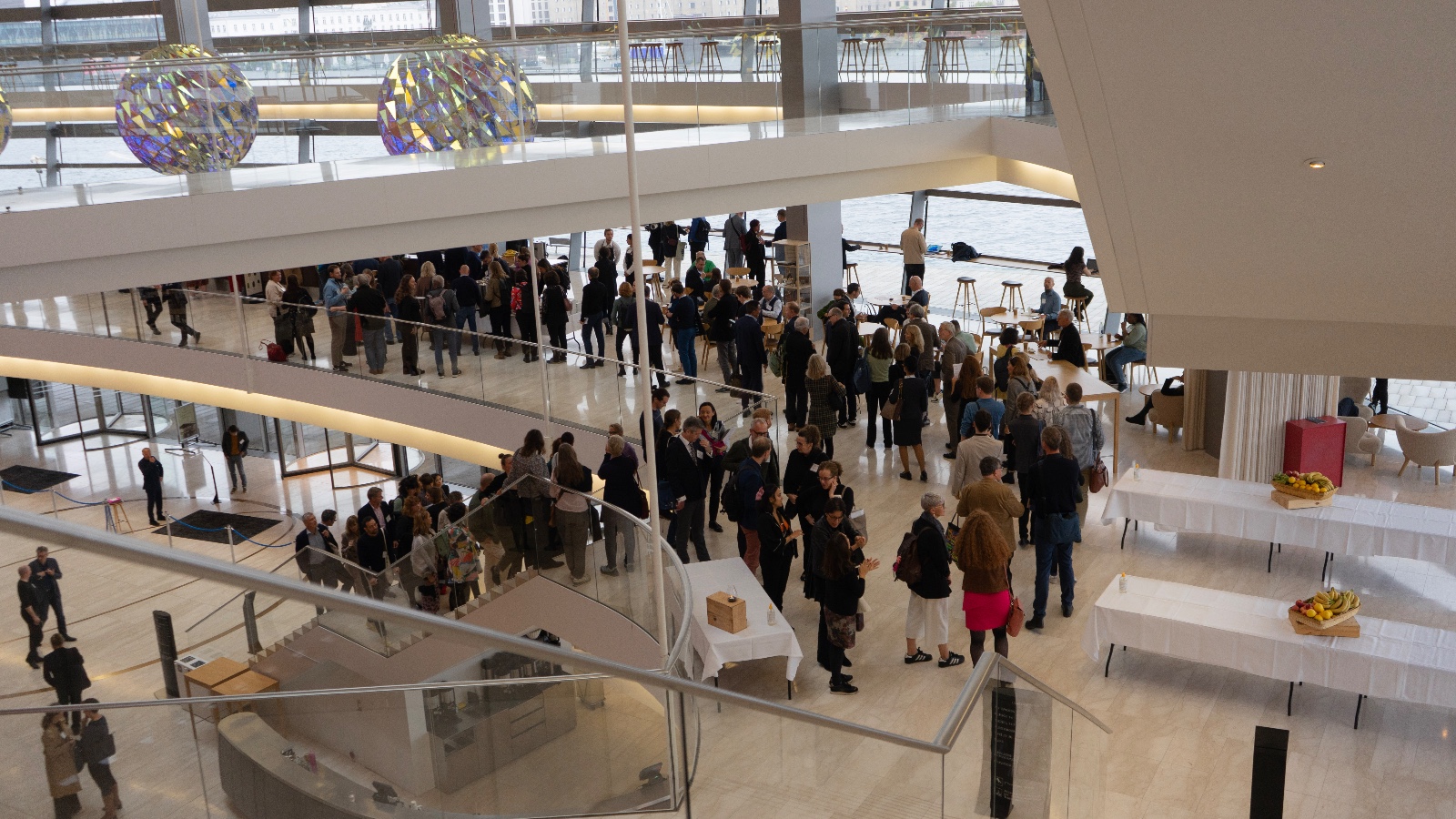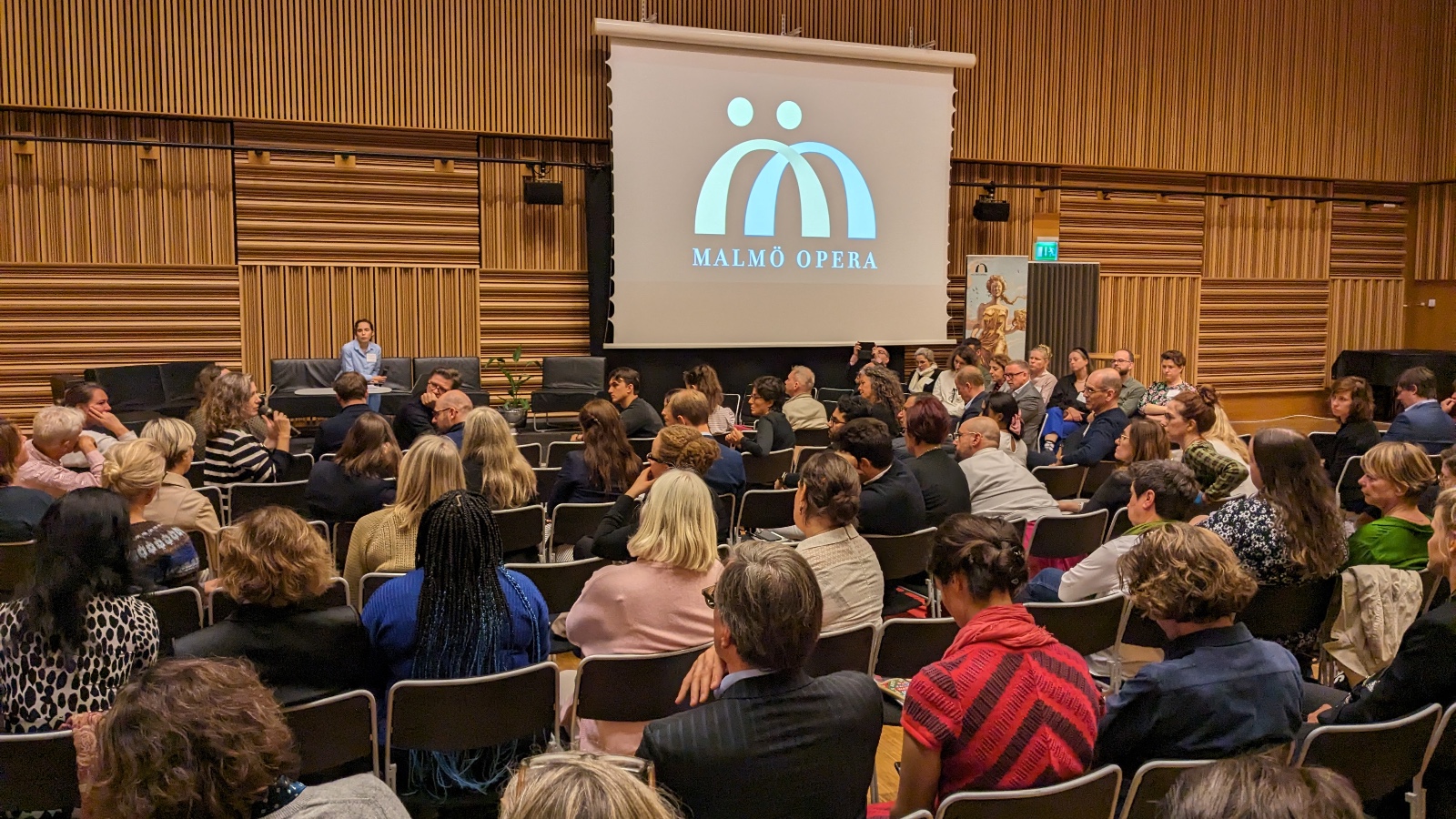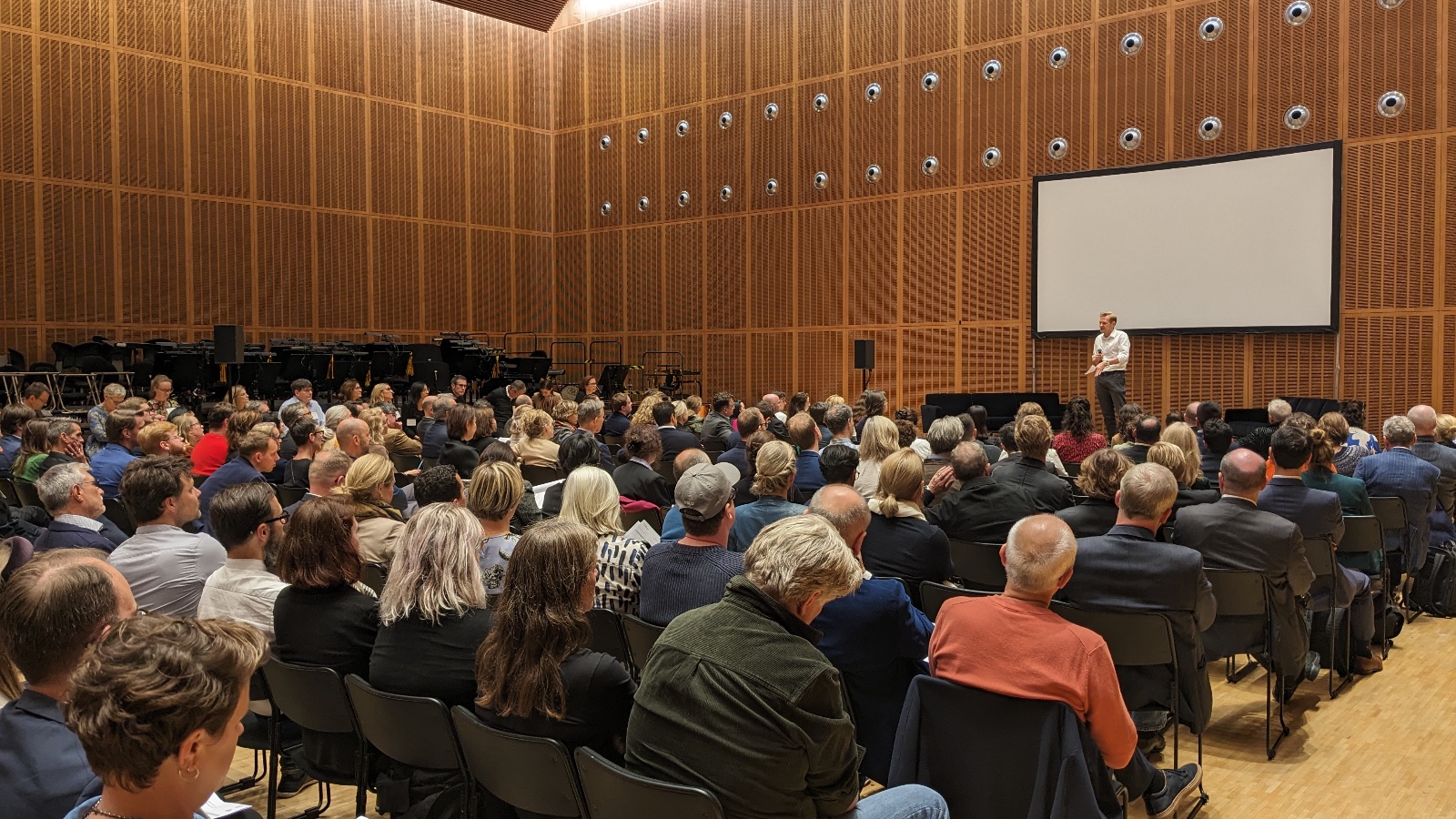2023-11-23
Authors

Philipp Krechlak
serves as the Managing Partner at "Deutscher Orchestertag" (German Orchestra Conference), responsible for conference content and strategic direction. He studied Business Mathematics and Music Management, worked in operational orchestra management at different institutions and positions, was member of boards and networks on music education and founded the nationally recognized chamber music series "Klangrausch" as well as a satirical music blog, which led to recurring music journalism activities.
Review Autumn Conference 2023 of Opera Europa
Rapids and Anchor Points in Focus

Not only German opera companies are facing increasing financial pressure - concerns about sufficient (public) funding or its continuation are also prevalent in other European countries. Therefore, the participants of the Autumn Conference of Opera Europa in early October 2023 in Copenhagen and Malmö discussed primarily the experiences with alternative sources of income and financing possibilities in the European context and how these can be adapted to the specific conditions of each country. However, the overarching theme that resonated throughout the entire conference was the intensive consideration of the (future) relevance of music theater institutions as places of cultural education and encounters for society.
The multiple crises of our time, which might be better described as one resulting multi-crisis, are also weighing heavily on cultural institutions and consequently demand responses from them - both self-directed solutions and offerings for the benefit of society as a whole. The funding crisis, especially because of a crisis in relevance, is one whose effects are likely to be the most direct and drastic. Creating networking and exchange opportunities is a proven approach to addressing such challenges together.
This is where events like these come into play: No one is alone (to blame), and unexpected inspiration and synergies can be found when people come together, leading to better solutions. Therefore, the European umbrella organization for music theater, "Opera Europa", in collaboration with the hosting member theaters, organizes a conference twice a year. During this conference, representatives of over 230 member operas and festivals, especially leadership personnel from management, artistic administration, and technical teams, exchange ideas. During the Autumn Conference of 2023, titled "Troubled Waters", the emphasis was on fostering connections, capitalizing on synergies, and extending a heartfelt invitation for mutual learning. Symbolically, this shared European character of the conference was also illustrated by the connecting Øresund Bridge between Copenhagen and Malmö.
Steadfast above the "troubled water"
While the third day of the conference in Malmö was exclusively for participants from member theaters, the first two days in Copenhagen also welcomed interested professionals from the field. Kasper Holten, the CEO of the Royal Danish Theatre in Copenhagen, opened and closed this public part. In his dynamic and entertaining opening keynote, he provided a refreshingly contemporary assessment of today’s music theater: he advocated for "more” in music theater - more unconventional works, new experiments, openness to changing needs of urban society. This "more" is needed, especially to avoid slipping into a spiral of self-victimization due to "less funding" leading to "fewer productions" leading to "less audience" leading to "less significance, hence less funding". He encouraged confidence in the future, to present a more confident stance towards the public and supporting policies, instead of fearfully reducing the program to opera blockbusters and musicals. He argued that the (often declared dead) subscription model was not at its end, but as a flat-rate model, it already belonged to the daily reality of the streaming, car-sharing, and bike-sharing generation of prospective opera-goers - a prime example that opera houses need to find solutions beyond existing mindsets. However, this requires significant adaptability from cultural institutions.
Furthermore, existing barriers to access must be identified and removed with a clear focus on providing a pleasant customer experience before, during, and after the opera visit: understandable language without opera jargon, easily accessible travel information, information about the (non-existent) dress code… This is especially important for a positive initial contact, which ultimately influences future visits. In conclusion, Kasper Holten presented a theater playground set to open in 2026, directly within the theater as a "third place", offering participatory activities for children, teenagers, and families - both for tourists who might return to explore their local theater programs and as a recreational option for local families, playing in the same league as Tivoli amusement park or SeaWorld.
Deep Dives into VR
Parallel to the conference program, the technology department of the Finnish National Opera Helsinki presented an impressive XR application for the production process of external directing teams. With technical support from the gaming industry and based on a 3D scan, the in-house stage and auditorium are virtually replicated. Stage design concepts and lighting moods can be created, discussed, and tested in more detail and at an earlier stage than is currently possible with scale models and extremely limited stage time for setup and lighting tests. The lighting effects change with the selected surface material. Safety training already takes place in this virtual stage space. Next, the application will be enhanced by incorporating gravity, i.e., considering weights for stage setups and materials hanging in the fly loft. Additionally, an inclusive implementation to improve accessibility for wheelchair users is in development.
Dry Spells and Thematic Oases
Almost all panels, where relevant, began with a PowerPoint-supported brief introduction of the represented opera houses, including budgets, funding amounts, production details, or CO2 outputs. This was very helpful in framing the discussion contributions. One of the very few moments of lull occurred during the first panel on the topic of Encouraging Creation. The discussion remained too vague and lacked specificity. This was primarily because the ideas and presumably fantastic projects and productions brought by the panelists were presented orally. Photos or a trailer would have been desirable here for better visualization and understanding for the curious audience - something that is typically expected in an art form where producing such materials for marketing is routine.
In addition to a technical tour of the Copenhagen Opera's new building, the second day included discussions on the advantages and disadvantages of singing competitions for the future of opera and a brainstorming session on promoting emerging talent. Furthermore, three (!) panels provided transparent insights into the financial challenges currently faced by theaters across Europe:
- from rising energy costs and the transition to carbon-neutral operations,
- to unexpected and equally severe cuts in public funding and the necessity of cultural lobbying,
- to alternative financing options such as cultivating patronage groups and private sector interest in attention-worthy projects and innovation in general.
Here, the strength of a music theater community that sees itself not as competitors but as responsible for each other through knowledge sharing and mutual support was evident.
Nordic Opera Ensembles: Abundance of Art "Despite" Fixed Contracts
Further intriguing insights were provided into the management of Nordic opera ensembles from Oslo, Gothenburg, and Copenhagen: Singers generally receive indefinite contracts - with a current retirement age of 69 or 70. Multi-year fixed-term contracts at the beginning of employment are possible but limited in relation to the number of indefinite contracts. From their mid-50s, singers with age-related vocal problems have the option of early retirement at the employer’s discretion, albeit at their own expense. More common are external retraining programs, but especially internal transitions to outreach programs, hosting roles, smaller roles, etc. All of this is well-prepared over a decades-long dialogue, taking into consideration the social situation. However, there seems to be dynamism and willingness to change in the Nordic opera singing market, which repeatedly offers opportunities for newcomers to start their careers. All panelists were aware of their responsibility towards freelance singers.
All of this is particularly interesting from a German perspective: Because here, under the guise of artistic freedom for the artistic director, the antiquated, legally possible but socially cynical practice of chaining fixed-term contracts for another year until the 15th year of employment is still followed. The contract’s end can come "for artistic reasons" at any time, (seemingly) arbitrarily and unprepared.
We Are (Opera) Europa
Overall, the conference stood out for its warm openness and a palpable sense of unity. None of the panel guests or audience contributions were driven by competitive thinking - on the contrary, sharing knowledge and experiences, even negative ones, ran through all contributions and even the breaks.
A large portion of the conference attendees came from Northern and Western Europe, partly due to the focus on the host countries, Denmark and Sweden. Furthermore, many historically and financially potent music theaters are in this part of Europe. However, perspectives from Southern and Eastern Europe would have rounded out some of the discussions and enriched them with their viewpoints. The demand for a pan-European opera conference would have been better fulfilled in this way.
The industry faces challenging tasks, but it can and should look confidently to the future - especially after a conference that so clearly emphasizes unity and shared strength and will undoubtedly remain open and honest with itself at the next conference.
Impressions of the Autumn Conference



There are no comments for this content yet.

